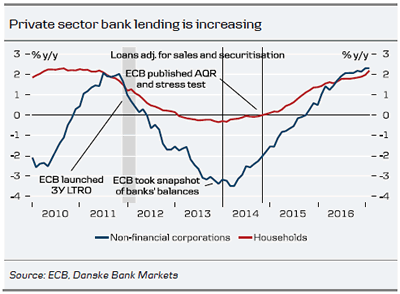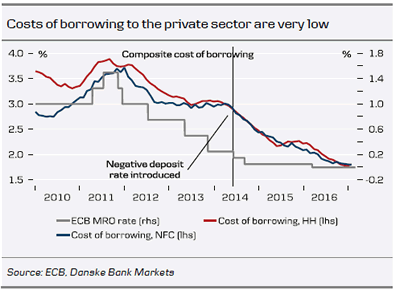We expect the ECB to maintain its dovish stance at the meeting this week although inflation has reached the 2% target. The reason why we do not expect the ECB to react to the stronger inflation figure is that it is driven by the volatile energy and unprocessed food price inflation, whereas the underlying price pressure remains weak. The ECB has said it will not change its monetary policy based on such a rise in inflation and in the introductory statement from the latest ECB meeting it was communicated that ‘the Governing Council will continue to look through changes in HICP inflation if judged to be transient and to have no implication for the medium-term outlook for price stability’.
Along the same lines, President Mario Draghi has defined four objectives which are relevant for the ECB’s monetary policy stance. These include that any rise in inflation is 1) affecting the medium-term horizon, 2) a durable convergence, 3) a self-sustained convergence (without the extraordinary monetary policy support) and 4) for the whole of the eurozone. While inflation is higher across euro area countries, it is much less clear for the ECB whether the first three conditions are also fulfilled, hence we expect the ECB to stick to its dovish stance while assessing the medium-term impact on inflation.
We expect core inflation will have to exceed 1.0% for a number of months before the ECB will announce tapering of its QE purchases. This follows as executive board member Benoît Cæuré at the end of last year said ‘we are still waiting for signs that core inflation is on the rise and will clearly exceed 1%’. Our forecast for core inflation is it will be 0.9% on average this year and only go slightly above 1.0% at the very end of the year, implying the ECB, in our view, will not announce tapering of its purchases this year. We still believe the ECB will extend its QE purchases beyond December 2017.
Despite the need for a continued accommodative monetary policy stance, the ECB is facing some challenges related to its QE purchases. Partly as a result of the ECB’s purchase patterns there has been a fall in short-end German yields at the beginning of this year, where the ECB has allowed itself to buy bonds yielding below the deposit rate. Regarding the future ECB QE purchases, the latest communication from the ECB shows it is very reluctant to allow a change to the 33% issue/issuer limit due to both legal and price formation issues.
From a market perspective, expectations are very low with a zero probability of a move in the deposit rate at the upcoming meeting. The market is pricing a 50% probability of a full 10bp hike in January next year, which in our view is premature.
Looking further ahead, a first step from the ECB when initiating a less accommodative monetary policy stance could be to remove its forward guidance. Currently, the ECB communicates that policy rates are expected ‘to remain at present or lower levels for an extended period of time, and well past the horizon of our net asset purchases’ and at some point in time the ECB will start stating that policy rates should not go lower, but stay at present levels for an extended period of time. Likewise, the ECB could at some point in time remove its easing bias related to the QE purchases where it currently communicates that it stands ready to increase its QE in terms of size and/or duration.
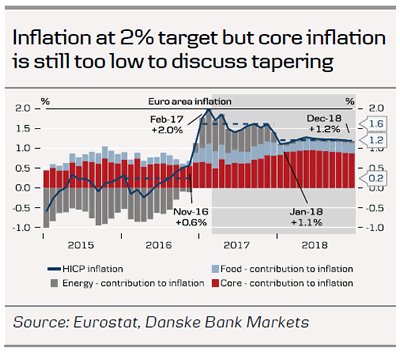
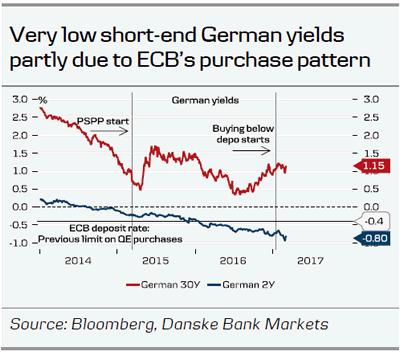
Our expectations for the ECB meeting
We expect the ECB to stick to a dovish tone even though inflation is back at the 2% target for the first time since January 2013 and the higher inflation is seen across euro area countries.
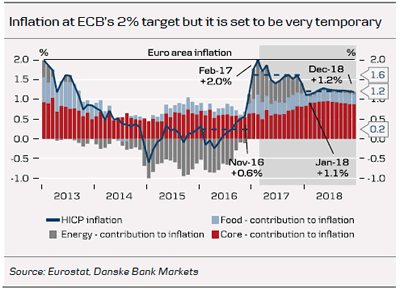
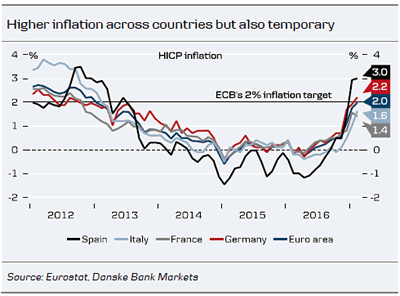
The main argument for a continued dovish stance is there are still no signs of underlying price pressure, which will be highly dependent on a pick-up in wage pressure.
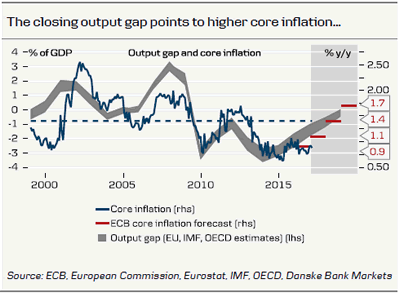
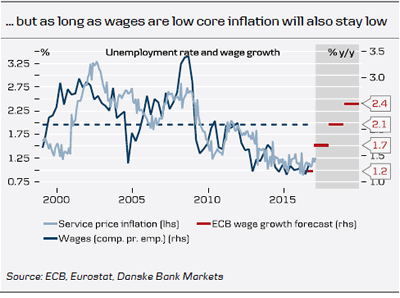
In our view, the ECB’s wage forecast is hopeful and due to slack in the labour market in the periphery countries the ECB will likely revise its wage forecast lower instead of start tapering.

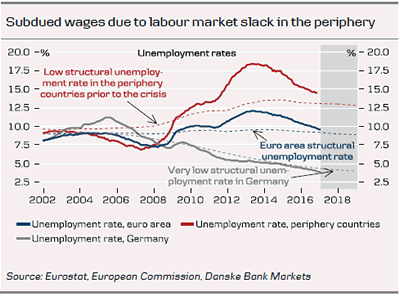
Monetary conditions
Market expectations are very low with zero probability of a deposit rate hike. The market is currently pricing a full 10bp hike already in mid-2018 and a 50% probability of a hike in January.
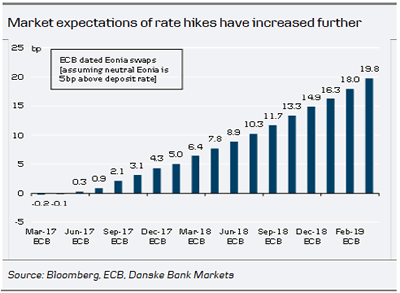
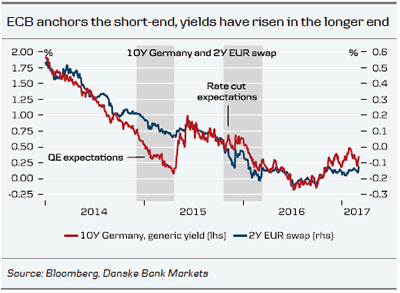
The minutes from the ECB meeting in December revealed the ECB expected a steeper yield curve – the new purchase pattern has been part of the reason why short-dated yields dropped.
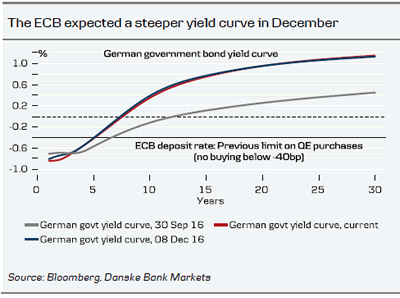
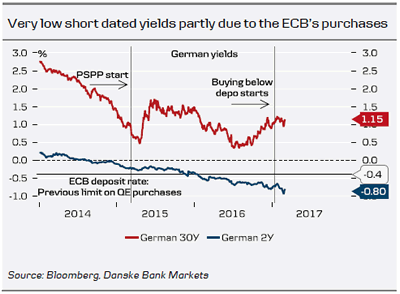
The effective euro is unchanged since the beginning of 2016 despite the political events in the UK and US and large moves in bilateral exchange rates.
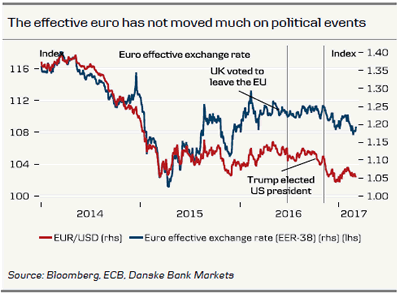
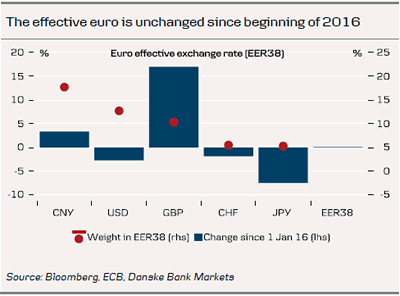
Survey and market-based inflation expectations
Market pricing of medium-term inflation – 5Y5Y inflation swap – has picked-up from its very low level but it has still not reached 2% and is only around QE announcement level.
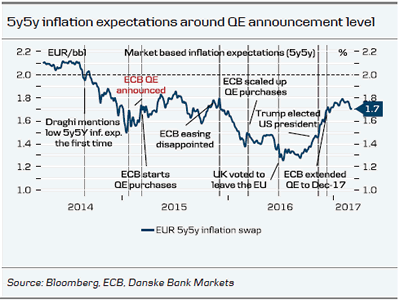
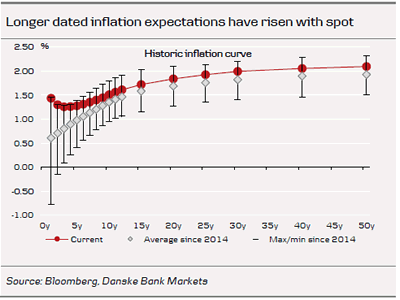
The rise in spot inflation has affected market based inflation expectations in longer tenors but longer-dated survey based inflation expectations are still at low levels.
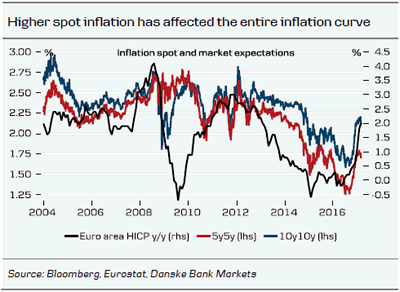
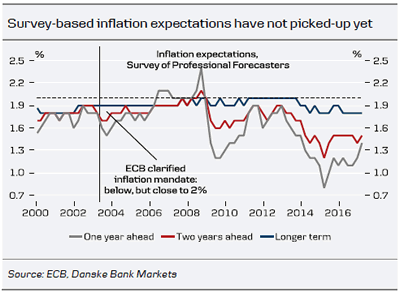
Close to 35% of the respondents in the ECB’s Survey of Professional Forecasters still expect inflation to stay below 1.5% in five years time.
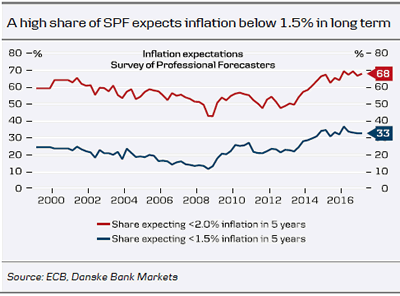
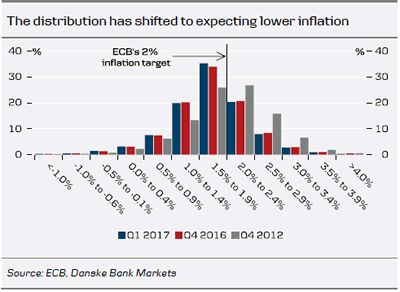
ECB’s inflation projection
Draghi has described the latest ECB inflation projection as ‘not really’ being close to the target. A higher near-term inflation forecast should not reflect higher underlying price pressure.
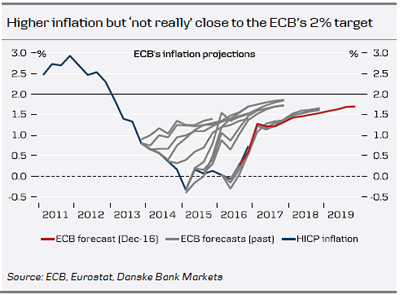
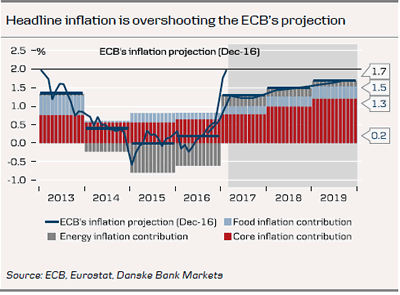
The current overshooting of the ECB’s inflation projection is driven by the oil price base effects together with a strong increase in unprocessed food price inflation.
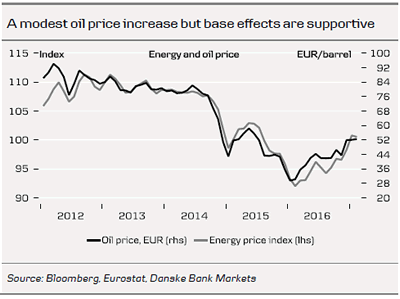
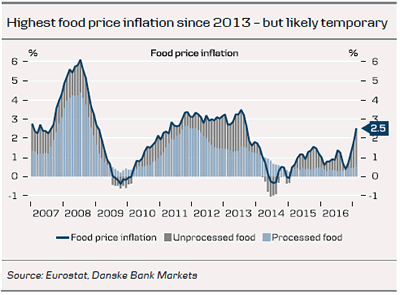
The ECB expects higher core inflation both this year, next year and in 2019 it should exceed its historical average – these core inflation forecasts are in line with what the ECB usually expects.
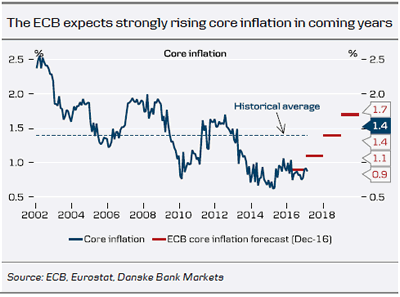
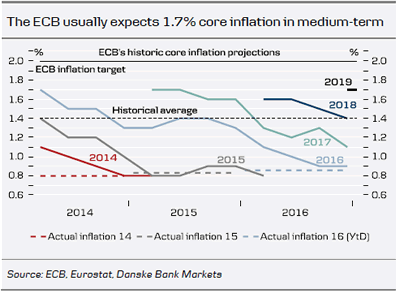
Activity indicators
Survey based activity indicators have been very strong and are currently at levels where the ECB historically has been tightening its monetary policy.
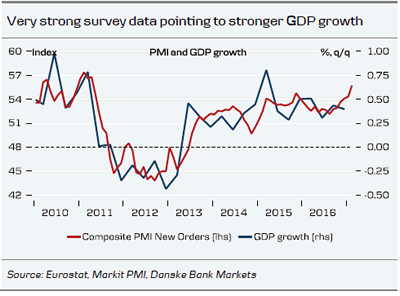
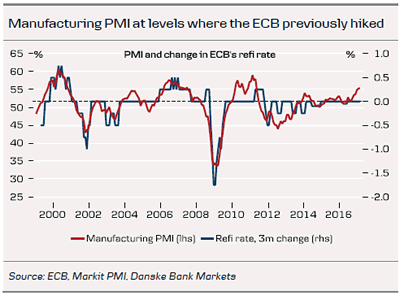
The strong activity indicators have implied the economic surprise index remains at a high level. The unemployment rate also continues to decline and the level in 2004-6 will soon be reached.
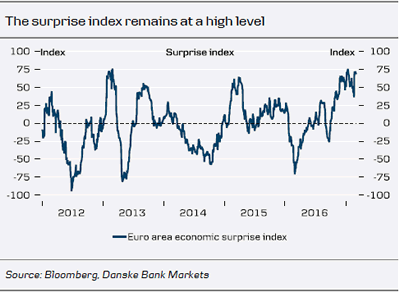
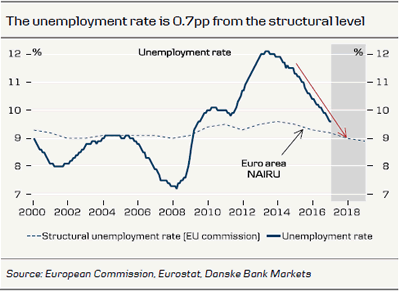
The transmission of the accommodative monetary policy is working better than in a long time – but according to the ECB ‘a very substantial degree of monetary accommodation is needed’.
